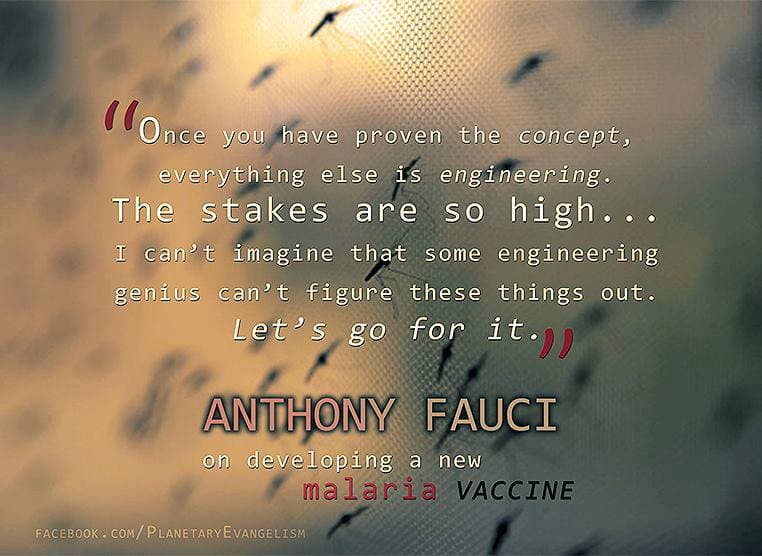The malaria vaccine works by producing a T-cell response in the human liver, where malaria parasites replicate after traveling through the blood stream. Director of the National Institute of Allergy Infectious disease Anthony Fauci indicates that "the time in the cycle is critical to prevent infection." Because the vaccine causes T-cells to attack malaria parasites before they are able to replicate in the liver, the disease was unable to spread in vaccinated participants. Dr. Robert Seder explains that although these results are encouraging, further research will determine whether the vaccine is effective in studies with larger sample sizes, whether its beneficial effects can last over time, and whether it can protect against multiple strains of malaria.
Despite the vaccine's effectiveness in this study, practical concerns also stand in the way of it being an immediate widespread solution for malaria outbreaks. Researchers used a time consuming and highly controlled process to produce malaria sporozoites in the bodies of mosquitoes used in the study. The mosquitoes were raised in a sterile environment, fed blood infected with malaria, and irradiated so that the sporozoites would be weakened. The parasites were then taken from the salivary glands of each mosquito individually. Although finding a way to automate and speed up this process will be a challenge, Fauci remains optimistic. "Once you have proven the concept, everything else is engineering" he says, "I can't imagine that some engineering genius can't figure these things out. Let's go for it."
Share This Article
